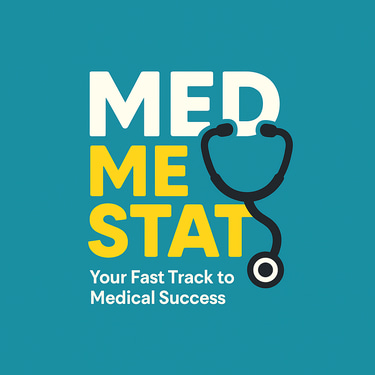Registration and practice pathways for International Medical Graduates (IMGs) in Saudi Arabia
Overview of the regulatory body
The Saudi Commission for Health Specialties (SCFHS) is the sole authority that registers and licenses physicians, dentists, nurses and allied health professionals in Saudi Arabiaodysseyrecruitment.com. It was established by royal decree and has its headquarters in Riyadh with branches in Jeddah, Al‑Khobar, Al‑Ahsaa, Abha, Madinah and Buraidahprometric.com. The commission formulates standards for health‑care practice, approves and supervises professional training programmes and examinations, and certifies qualified professionalsprometric.com. All healthcare practitioners (including international medical graduates) must obtain an SCFHS licence before they can work in public or private healthcare sectorsalphahmc.com.
Step‑by‑step licensing process
The pathway for IMGs to obtain a Saudi licence is essentially the professional classification and registration process. It is often described as a four‑step processodysseyrecruitment.com:
1. Set up a Mumaris Plus account and submit documents
Account creation and initial submission – Applicants create an account on the Mumaris Plus portal of the SCFHS and select the professional classification servicemy.gov.sa. They must upload scanned copies of their educational certificates, professional licences, passport, employment certificates and other required documentsodysseyrecruitment.com. The Mumaris system assesses whether the applicant’s qualifications are acceptable; if so, it issues an Eligibility Numberbenkhan.com.
Required documents – Typical documents include: primary medical degree and transcript, certificate of completion of internship or specialist training, current home‑country medical licence and good‑standing certificate, evidence of at least two years of experience in the applicant’s specialty, employment letters, updated curriculum vitae and passport photographsallocationassist.com. Documents in languages other than Arabic or English must be translated and some documents require authentication by the Saudi Cultural Missionallocationassist.com. Applicants must also provide a medical fitness report if over 65 years of ageallocationassist.com.
2. Primary source verification (DataFlow)
Why it is required – The SCFHS uses a third‑party company, DataFlow Group, to perform primary source verification (PSV) of an applicant’s educational credentials, professional licence and employment experienceodysseyrecruitment.com. This step prevents fraudulent credentials and is mandatory before eligibility for the licensing examodysseyrecruitment.com.
Process – Applicants must upload their documents into the DataFlow system using the Eligibility Number. DataFlow contacts the issuing institutions to verify authenticity of degrees, licences and work experience. The verification usually takes about 14–30 days with express serviceodysseyrecruitment.com or 6–8 weeks with the standard serviceallocationassist.com. Once DataFlow issues a positive report, the applicant proceeds to the next step.
3. Professional classification and licensing exam
SCFHS review and classification – After DataFlow verification, the SCFHS reviews the candidate’s credentials in Mumaris Plus and determines whether he or she meets the professional qualification requirements and the minimum qualification list for the chosen specialty. Applicants may be issued an “Eligibility Number” for the licensing examodysseyrecruitment.com.
Saudi Medical Licensing Examination (SMLE) and other exams – For physicians, the principal test is the Saudi Medical Licensing Examination (SMLE). It is administered through Prometric testing centres and lasts four hours and thirty minutesprometric.com. Exam results are posted on the SCFHS portal within 7–10 working daysprometric.com. Some specialties require oral exams held in Saudi Arabiaallocationassist.com.
Exemptions – Doctors who completed postgraduate medical training and obtained specialist qualifications in countries recognized by the SCFHS—such as the UK, USA, Canada, Ireland, Australia and New Zealand—are usually exempt from taking the licensing examodysseyrecruitment.comallocationassist.com. Physicians may instead undergo an online evaluation sessionhziegler.com.
4. Professional classification certificate and final registration
Issuance of certificate – Once the applicant passes the SMLE (or is granted an exemption), the SCFHS conducts a final review and issues a Professional Classification Certificate and Registration Certificate specifying the practitioner’s grade (e.g., resident, specialist or consultant)hziegler.com. Classification decisions aim to align the practitioner’s grade with their training and experience; applicants must pass professional evaluation proceduresfor classificationcams.ksu.edu.sa. The certificate is typically valid for two yearshziegler.com.
Obtaining the licence card – After arriving in Saudi Arabia and obtaining an iqama (residence permit), the practitioner must update their Mumaris Plus profile with the iqama detailshziegler.com. The SCFHS then issues a physical licence card allowing the practitioner to practise in Saudi Arabiaodysseyrecruitment.com. Licence renewal and re‑classification require submitting evidence of continued professional development and may involve re‑examination if practice has been interrupted for several yearscams.ksu.edu.sa.
Additional considerations
Classification standards and experience requirements
The Professional Classification Manual states that applicants must pass professional evaluation procedures, and the Commission ensures that classification corresponds to the applicant’s training and practical experiencecams.ksu.edu.sa. Non‑Saudi applicants who do not meet the required experience period are only accepted if they were born or educated in Saudi Arabia and must work under supervision until they acquire two years of experiencecams.ksu.edu.sa. Certificates obtained through distance learning or programmes lacking patient‑care training are not eligible for professional classificationcams.ksu.edu.sa.
Document translation and attestation
All documents not in Arabic or English must be translated by an accredited translatorallocationassist.com. Certain documents (e.g., degrees and experience certificates) may need to be authenticated by the Saudi Cultural Mission in the applicant’s home countryallocationassist.com.
Fees and processing times
SCFHS classification and registration fees vary by profession and are paid through the Mumaris portalhziegler.com. Primary source verification typically takes 14–30 days (express) or 6–8 weeks(standard)odysseyrecruitment.comallocationassist.com. The overall licensing process can take several months from initial submission to receipt of the licenceallocationassist.com.
Summary
International medical graduates who wish to practise in Saudi Arabia must obtain a professional classification and registration from the Saudi Commission for Health Specialties. The process begins with creating a Mumaris Plusaccount, uploading educational and professional documents and obtaining an eligibility number. Candidates then undergo primary source verification through DataFlow, followed by professional classification in which SCFHS reviews their credentials and determines whether they must sit the Saudi Medical Licensing Examination (SMLE). Physicians trained in certain recognized countries may be exempt from the exam. After passing the exam (or being exempt), the SCFHS issues a Professional Classification Certificate and final Registration Certificate that specify the practitioner’s grade. Practitioners must update their profiles upon obtaining a residence permit in Saudi Arabia, at which point they receive their licence card and can begin work under the conditions set by the SCFHS.
